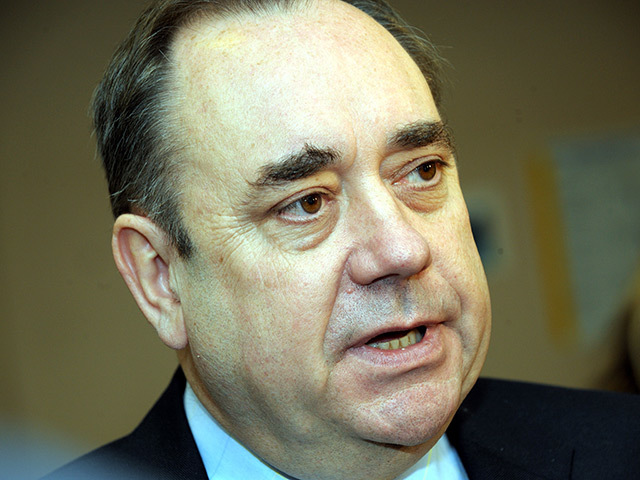
Scotland’s First Minister has called for a “truce deal” so production can resume at the Grangemouth oil refinery while negotiations between union chiefs and the owners of the plant take place.
Alex Salmond has urged Unite to confirm in writing that they will commit to normal working at the plant without industrial action until the end of the year, and has called on Ineos to fire up the plant and restart production while further negotiations and consultations regarding the future of the plant take place.
“It’s a truce deal to get the plant up and running,” the First Minister said after talks in Edinburgh last night.
“It’s not for me to tell Unite or the company or the workforce how they should negotiate or consult on their terms and conditions – that’s for them to do – but I want these negotiations to take place against the background of a plant that is operating as opposed to that is cold.
“From my discussions with both parties in this dispute I believe both are sincerely committed to create a great future for Grangemouth.
“I believe that whilst there will be a long way to go, I believe that acceptance of my proposal tonight would be an essential first step in this process.”
The First Minister announced yesterday that he would host the talks as he addressed SNP activists at the start of the party’s autumn conference, saying that the Grangemouth dispute is a “difficult industrial situation” and he is disappointed that talks at the conciliation service Acas earlier in the week failed to resolve it.
Grangemouth owner Ineos said it is keeping the plant shut while workers are consulted about proposed changes to issues such as pensions.
The dispute over the treatment of union convener Stephen Deans has cost Ineos £20 million at a time when the refinery is losing £10 million a month, according to the company.
Workers have been given details of Ineos’s survival plan, with the firm saying it is “D-Day” for the oil refinery site.
Unite, which called off a 48-hour strike planned to start on Sunday, accused Ineos of “fancy accounting manoeuvres” and challenged the firm’s claims about the financial difficulty it faces.
Salmond said contingency plans to cover the period when the plant is shut are “well laid to ensure the flow of petrol and fuel continues and the Scottish economy continues to function”.
Letters have been sent to the homes of Grangemouth workers detailing changes to their terms and conditions, including ending their final salary pension scheme, freezing pay and bonuses, reducing shift allowances and new agreements with unions including having part-time conveners.
The Grangemouth refining and chemicals complex has been shut down twice in the last 40 years – during a previous strike in 2008 and again in preparation for the latest walkout, according to Ineos. It said it is unable to restart the complex on safety grounds.
“The First Minister’s involvement underlines Grangemouth’s importance to the Scottish economy,” said Pat Rafferty, Unite Scottish secretary.
“We hope his intervention assists us in reaching a settlement that secures the future of such a vital national asset.
“Going forward the company needs to lift the fear of its ’sign or be sacked’ ultimatum which is hanging over the workforce and negotiate a transitional plan for the site.”
Recommended for you
